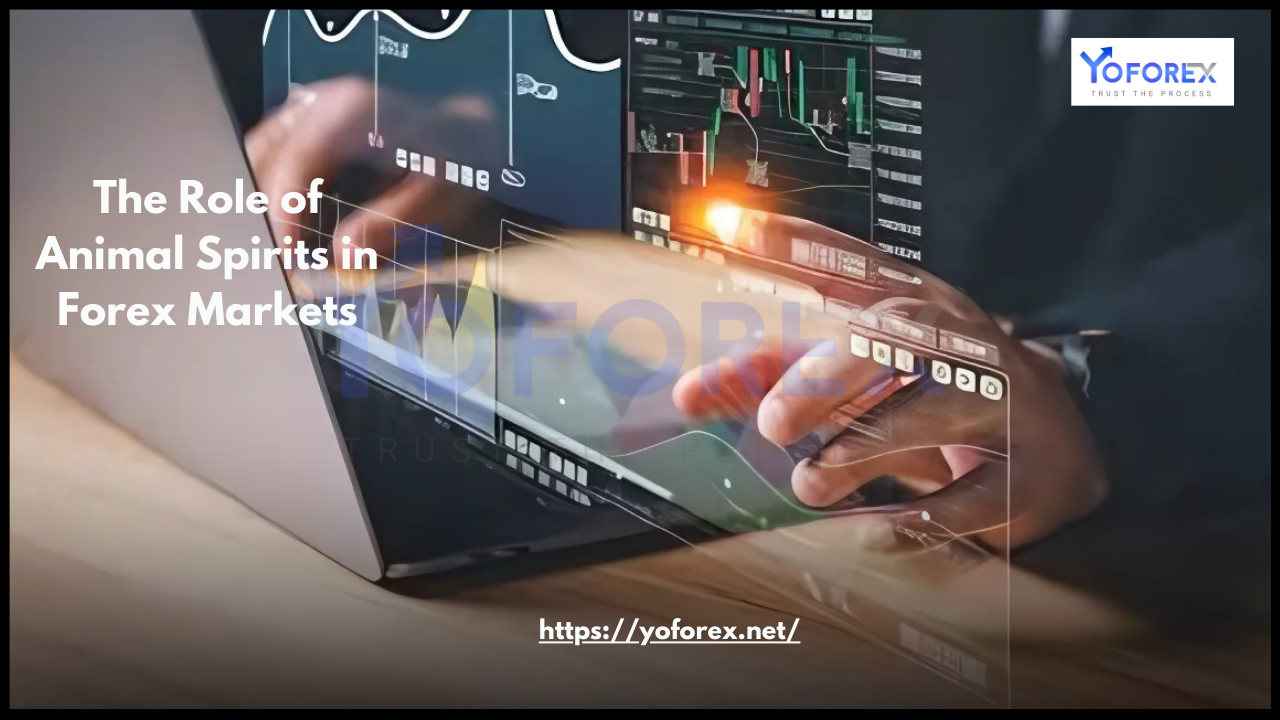Forex trading, the largest and most liquid financial market in the world, is often seen as a domain governed by logic, technical analysis, and fundamental strategies. However, the human element—emotions, instincts, and psychology—plays a crucial role in shaping price movements and market trends. This behavioral factor, famously termed “animal spirits” by economist John Maynard Keynes, significantly influences forex traders’ decisions, often leading to irrationality, herd behavior, and volatility.
In this article, we explore how animal spirits impact forex trading, the psychological biases that affect traders, and strategies to mitigate impulsive decision-making.
Understanding Animal Spirits in Forex Markets
The term animal spirits refers to the emotions and instincts that drive human behavior in economic and financial markets. Keynes argued that these spirits influence confidence levels, risk appetite, and ultimately, market outcomes. In forex markets, traders’ sentiment can override data-driven analysis, causing currency prices to deviate from their fundamental values.
Forex markets are highly sensitive to news, economic indicators, and geopolitical events. However, traders’ reactions to these stimuli are often dictated by their emotions rather than pure rationality. Fear, greed, euphoria, and panic frequently shape trading patterns, creating opportunities and risks.

Psychological Biases Driving Forex Trading Decisions
Several psychological biases influence trading behavior, often leading to suboptimal decisions. These biases stem from the interplay of instincts, emotions, and cognitive distortions. Let’s explore some of the most prominent ones:
1. Herd Mentality
Traders often follow the crowd, buying or selling currencies simply because others are doing the same. This behavior can create momentum-driven trends, such as bullish or bearish waves, even when market fundamentals do not support such movements.
- Example: A sudden appreciation of the USD against the EUR due to a speculative buying spree, even when economic data suggests a weaker USD.
2. Loss Aversion
Loss aversion refers to traders’ tendency to feel the pain of losses more intensely than the pleasure of gains. This leads to holding onto losing trades for too long in the hope that the market will reverse, or prematurely closing profitable trades to lock in small gains.
- Example: A trader holds onto a losing GBP/USD position despite clear indications of further depreciation, unwilling to accept a small loss.
3. Overconfidence Bias
Traders, especially after a series of successful trades, may become overconfident in their abilities, leading to excessive risk-taking and neglecting risk management principles.
- Example: A trader who correctly predicted a few price movements increases their leverage, believing they have superior market insight, only to face a large loss due to unforeseen market shifts.
4. Confirmation Bias
Traders often seek information that supports their pre-existing beliefs and ignore evidence that contradicts them. This bias can lead to reinforcing poor trading strategies and ignoring critical warning signs.
- Example: A trader bullish on the Japanese yen (JPY) selectively focuses on positive economic reports while dismissing negative indicators that suggest a decline.
5. Panic Selling and FOMO (Fear of Missing Out)
Market panics or the fear of missing out on profitable trades can cause traders to act impulsively. Sudden sell-offs or buying frenzies often result from heightened emotional reactions rather than sound analysis.
- Example: After a sharp fall in EUR/USD due to an unexpected announcement, traders panic sell, exacerbating the decline beyond logical valuation.
The Impact of Animal Spirits on Forex Market Volatility
The presence of animal spirits in forex trading can cause excessive volatility, leading to sharp price swings that may not align with underlying economic fundamentals. Traders driven by emotions can trigger unpredictable movements, making forex markets more challenging to navigate. Here’s how animal spirits contribute to volatility:
- Speculative Bubbles: Excessive optimism can inflate currency values beyond sustainable levels, leading to eventual crashes.
- Market Overreactions: News events can cause exaggerated price reactions due to herd behavior and panic.
- Flash Crashes: Automated trading combined with human emotion can lead to sudden, steep declines or spikes in currency values.
- Trend Formation and Reversals: Emotional trading often fuels strong trends, which can reverse sharply when sentiment shifts.
Strategies to Manage Animal Spirits in Forex Trading
While emotions and instincts are inevitable in trading, managing them effectively can improve decision-making and profitability. Here are some strategies to counteract impulsive trading:
1. Develop a Trading Plan
Having a well-defined trading strategy with clear entry and exit rules, stop-loss levels, and risk management principles can reduce emotional decision-making.
2. Use Risk Management Techniques
Employing proper risk management tools, such as stop-loss orders, position sizing, and diversification, helps mitigate losses caused by impulsive trading.
3. Maintain Emotional Discipline
Practicing mindfulness, keeping a trading journal, and setting emotional checkpoints can help traders recognize and control their emotional biases.
4. Avoid Overtrading
Taking excessive trades based on emotions rather than analysis can lead to significant losses. Sticking to a strategy and avoiding revenge trading is crucial.
5. Seek Contrarian Views
To counter confirmation bias, traders should actively seek opinions that challenge their perspectives and reassess their analysis objectively.
6. Use Technology and Automation
Automated trading systems and algorithmic strategies can remove emotional influences, ensuring more disciplined execution of trades.
Conclusion
Animal spirits play a significant role in forex markets, influencing traders’ decisions and contributing to price volatility. Psychological biases such as herd mentality, loss aversion, and overconfidence can lead to irrational behaviors that drive currency fluctuations. However, by understanding these biases and employing structured trading strategies, traders can mitigate impulsive decision-making and enhance their overall performance.

